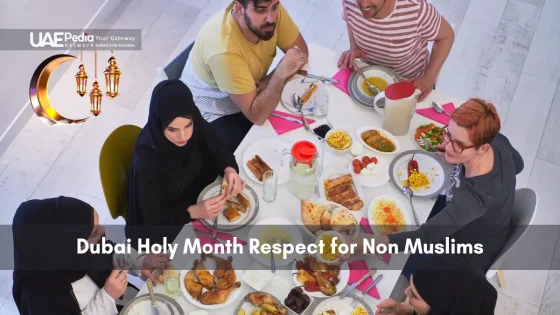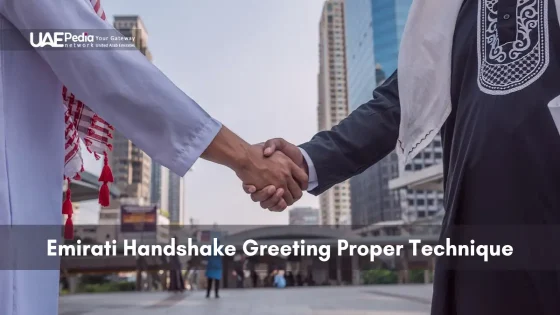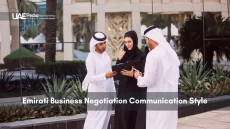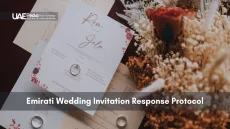Did you know that UAE Federal Law No. 3 of 1987 outlines specific guidelines for public conduct during this sacred month? Ramadan transforms cities across the Emirates, blending spiritual reflection with vibrant community energy. For visitors, understanding local customs ensures every experience aligns with both cultural respect and personal comfort.
Fasting from dawn to sunset is central to Ramadan’s rhythm. While those observing abstain from food and drink, visitors can still enjoy meals discreetly in designated spaces. Malls like Dubai Mall and Mall of the Emirates offer extended hours and indoor dining zones where travelers can savor everything from quick bites to lavish spreads.
Evenings here glow with the spirit of iftar—the meal breaking the fast. Picture tables laden with dates, fragrant Arabic coffee, and communal platters shared among friends. Hotels host elaborate buffets, while street vendors serve crispy samosas and sweet kunafa. Yet daytime calls for mindfulness: avoid eating or drinking openly in shared spaces like parks or sidewalks.
This month isn’t just about rules—it’s a celebration of generosity. Locals welcome questions about traditions, and many restaurants adjust schedules to accommodate all guests. With a little awareness, you’ll discover how to honor this meaningful time while enjoying Dubai’s dynamic food scene.
- Cultural respect during fasting hours ensures harmony between visitors and locals.
- Legal guidelines protect traditions while allowing flexibility in designated areas.
- Malls and hotels become hubs for diverse dining experiences after sunset.
- Iftar rituals like dates and shared meals highlight the month’s communal spirit.
- Balancing curiosity with mindfulness creates richer travel memories.
Understanding Ramadan and Its Cultural Significance in Dubai
Imagine waking before dawn to share a quiet meal with loved ones, then gathering again at sunset to break bread under lantern-lit skies. This rhythm defines Ramadan—the ninth month of the Islamic calendar—when Muslims worldwide commemorate the Quran’s revelation through fasting, prayer, and acts of charity. Its roots stretch back over 1,400 years, but today, the month pulses with traditions that blend ancient rituals with modern Emirati life.
Roots of Reflection and Community
Fasting from sunrise to sunset isn’t just about abstaining from food or water. It’s a spiritual exercise in self-discipline, empathy for those in need, and deepening family bonds. The pre-dawn suhoor meal often features protein-rich dishes like harees (wheat porridge) and laban (buttermilk), while dates and Arabic coffee ceremonially break the fast at iftar.
- Children embrace the festive Hagg Al-Layla, dressing in traditional attire to collect sweets door-to-door.
- Communal tents unite neighbors and strangers for shared meals, reflecting the UAE’s emphasis on hospitality.
- While Sunni Muslims typically follow lunar sighting methods, Shia communities may observe fasting based on alternative calculations.
Modern Traditions, Timeless Values
Public spaces transform during this period. Malls dim lights during prayer times, and workplaces shorten hours to accommodate late-night gatherings. Non-Muslims are warmly included—many join iftar feasts or avoid chewing gum in public out of respect. As one local chef told us: “Ramadan isn’t a restriction; it’s an invitation to slow down and connect.”
Want to dive deeper? Explore our guide to Emirati religious holidays, where centuries-old customs meet today’s vibrant multicultural tapestry.
Navigating Dubai’s Dining Regulations During Ramadan
Picture this: golden-hour light fades as vendors quietly roll up café awnings. From sunrise to sunset, dining in shared spaces follows a thoughtful rhythm. Let’s unpack how to enjoy meals while honoring local traditions.
When and Where to Dine
Between imsak (pre-dawn) and sunset, eating drinking public areas like parks or sidewalks isn’t permitted. Many restaurants cafes adapt by:
- Covering outdoor seating with privacy screens
- Shifting working hours to align with sunset
- Offering takeaway boxes for beachgoers
“Designated zones like hotel beaches and food courts operate under special permits,” explains a Dubai Municipality spokesperson. “These spaces balance cultural respect with visitor needs.”
Rules with Purpose
UAE Federal Law No. 3 of 1987 ensures harmony during fasting hours. Recent updates for 2025 include:
| Regulation | Impact | Location |
|---|---|---|
| Outdoor dining permits | Reduced by 40% | Residential areas |
| Extended licenses | Until 3 AM | Shopping malls |
| Enforcement patrols | +25% increase | Tourist hotspots |
Most eateries stay open but adjust menus and music volume. A chef at a popular marina spot shares: “We create cozy nooks for daytime guests—think curtained booths and silent coffee grinders.”
Pro tip: Check restaurant social feeds for real-time updates. Many post seasonal working hours and private dining options weeks before the holy month begins.
Dubai Public Eating Ramadan Considerations: Tips for Non-Fasting Visitors
Sunset in Dubai brings more than just cooler temperatures—it’s a cultural reset. For non-Muslims and exempt groups, navigating meals during daylight hours requires awareness, not anxiety. A few thoughtful choices let you enjoy flavors while honoring traditions.
Designated Dining Areas and Private Spaces
Seek out hidden gems like curtained café corners in malls or hotel beach cabanas. These spots blend privacy with convenience. Most shopping centers keep indoor food courts open, where you can grab a bite without drawing attention. Pro tip: Book tables at restaurants with enclosed terraces—many offer seasonal menus tailored for daytime guests.
Respectful Practices for Tourists and Exempt Groups
Keep snacks and drinks discreet during fasting hours. Even chewing gum in shared spaces can feel disruptive. One hotel concierge advises: “Use takeaway containers for beach picnics, and save open-air dining for after sunset.” Check UAE holiday etiquette guidelines for real-time updates on permitted areas.
Simple adjustments make a difference:
- Plan meals around iftar timings—restaurants burst to life post-sunset
- Ask staff about private dining rooms or delivery options
- Carry reusable water bottles for sips in your car or hotel
Remember, these practices aren’t restrictions—they’re invitations to connect with the city’s rhythm. By embracing the spirit of generosity, you’ll find every meal becomes part of the story.
Best Practices for Dining in Hotels and Malls in Dubai
Hotels and shopping centers buzz with energy during this sacred month. Extended hours and creative menus turn these spaces into hubs where tradition meets modern convenience. Whether you’re craving slow-cooked lamb ouzi or fusion dishes, there’s a feast waiting behind every door.
Iftar and Suhoor Dining Options
From lavish buffets to intimate beachfront setups, hotels craft menus celebrating regional flavors. Try date-stuffed pastries or creamy hummus paired with freshly baked bread. One chef notes: “We blend grandmother’s recipes with global twists—think saffron risotto served beside grilled meats.” Many venues offer pre-dawn suhoor packages featuring energizing snacks like nuts and labneh.
Extended Operating Hours and Special Menus
Shopping malls adapt schedules to welcome guests late into the night. Check these seasonal perks:
| Venue | Extended Hours | Features |
|---|---|---|
| Luxury Hotels | 4 AM closing | Private beach dining |
| Major Malls | Midnight closure | Global food courts |
| Cafés | 24/7 service | Discreet takeaway |
Book tables 48 hours ahead—popular spots fill fast. Stay hydrated with infused waters offered at most restaurants post-sunset. Pro tip: Look for family-friendly areas with play zones so kids stay entertained while adults savor meals.
Understanding Public Behavior and Local Etiquette During Ramadan
Ever noticed how cities soften their footsteps during sacred seasons? From dawn to sunset, streets hum with quiet solidarity. Everyone—locals and visitors—plays a role in maintaining this harmony through simple, mindful choices.
Proper Conduct in Shared Spaces
Between sunrise and nightfall, avoid visible consumption of food, drinks, or cigarettes. Locals appreciate when everyone refrains from snacking or smoking between imsak and sunset. Designated spots like hotel lounges or mall food courts offer discreet options. A Dubai Municipality officer shares: “Respectful behavior isn’t about rules—it’s about empathy. We’re all part of the same community.”
- Keep music low in cars or homes near prayer areas
- Dress modestly when visiting traditional neighborhoods
- Save lively conversations for private gatherings
Staying Healthy While Honoring Traditions
For those fasting, balance is key. Hydrate well during non-fasting hours with water-rich foods like cucumbers and dates. Overeating at iftar can lead to fatigue—opt for smaller portions of grilled meats and whole grains. Swap that midday coffee for a brisk walk in shaded areas.
Quick tips for all:
- Carry reusable bottles for sips after sunset
- Use tinted cups if drinking in transit
- Check local apps for real-time prayer schedules
These practices create a ripple effect. When we mind our actions, we nurture a space where spiritual focus and daily life coexist peacefully.
Regulatory Insights and Recent Changes for Outdoor Eating
As sunset paints the sky, the aroma of cardamom-spiced coffee drifts from curtained terraces—a signal that dining norms shift with the sun’s rhythm. This year brings simpler rules for alfresco meals, blending tradition with practicality.
Permits Simplified, Boundaries Defined
Gone are the days of complex licensing for outdoor seating. Many restaurants now operate open-air spaces freely but must follow new layout guidelines: tables stay 5 meters from sidewalks, and privacy screens become mandatory during fasting hours. Hotel beaches and resort courtyards remain key spots for daytime bites, where guests can sip karak chai without disrupting the spiritual atmosphere.
“Flexibility meets respect,” notes a Dubai Tourism official. “By focusing on designated zones, we preserve the month’s sanctity while supporting businesses.”
When and Where to Savor Flavors
From dawn until sunset, avoid visible consumption in shared spaces like parks or transit hubs. Exceptions apply for children, pregnant individuals, and those with medical needs—though discretion is encouraged. Post-sunset, the city blooms with options:
- Beachfront grills reopen as stars appear
- Food trucks cluster near major malls until midnight
- 24-hour cafés offer takeaway boxes for late-night cravings
Enforcement teams prioritize education over penalties, but repeat violations may incur fines. Pro tip: Bookmark the Dubai Municipality app for live updates on permitted areas. By syncing your plans with these rhythms, you’ll savor every meal while honoring the city’s culinary heartbeat.
Embracing the Spirit of Ramadan: A Respectful Dining Experience
As twilight hues paint the skyline, a shared rhythm of reflection and connection emerges across the city. Navigating meals during the holy month becomes less about restrictions and more about joining a collective pause—a chance to savor flavors while honoring centuries-old customs.
Mindful choices create harmony. Opt for discreet dining in mall food courts or curtained hotel terraces during fasting hours. After sunset, let the city’s energy guide you to communal meal spreads under starry skies. From crispy falafel stands to high-end restaurants cafes, every bite tells a story of generosity.
Balance curiosity with awareness. Check local apps for updated permits in outdoor areas, and embrace the warmth of public fasting traditions. Remember: a reusable water bottle and tinted cup let you stay refreshed without disrupting the spiritual atmosphere.
This month isn’t just a cultural event—it’s an invitation to grow. By aligning your dining habits with local rhythms, you’ll discover richer connections and hidden culinary gems. Ready to explore further? Let every shared platter and whispered shukran deepen your appreciation for this vibrant chapter in the Emirates’ story.
No—UAE law prohibits eating, drinking, or chewing gum in public spaces from dawn to sunset. Hotels, malls, and designated screened areas offer discreet dining options for non-fasting individuals.
Many restaurants and cafes operate behind privacy screens or in food courts. Delivery services like Talabat and Deliveroo run normally, letting you enjoy meals privately.
Fines up to AED 2,000 can apply. Carry a reusable water bottle and sip discreetly in your car or designated zones. When unsure, wait until sunset—iftar announcements signal when restrictions lift.
Malls like Dubai Mall extend hours post-iftar, with some stores opening later mornings. Food courts have screened seating, while luxury spots like At.mosphere serve lavish suhoor menus past midnight.
Absolutely! Attend community iftars at Sheikh Mohammed Centre or Jumeirah mosques. Dress modestly, avoid loud music, and greet locals with “Ramadan Kareem”—many hotels host cultural dinners to share Emirati hospitality.
Updated regulations allow licensed beach clubs and park vendors to serve post-iftar. Chewing gum remains banned publicly—opt for sugar-free mints discreetly if needed, but prioritize cultural sensitivity.















